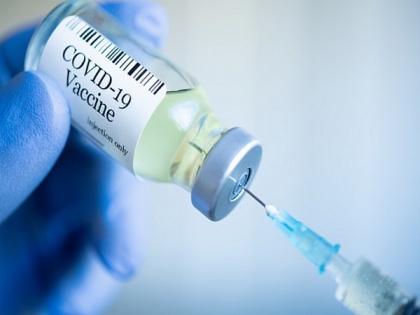Philippines citizens rejecting Chinese COVID-19 vaccines due to delays, erratic supplies
By ANI | Published: May 27, 2021 04:45 PM2021-05-27T16:45:43+5:302021-05-27T16:55:02+5:30
Owing to repeated delays, disorganisation and erratic supplies, many citizens of the Philippines are rejecting COVID-19 vaccines from China.

Philippines citizens rejecting Chinese COVID-19 vaccines due to delays, erratic supplies
Owing to repeated delays, disorganisation and erratic supplies, many citizens of the Philippines are rejecting COVID-19 vaccines from China.
South China Morning Post (SCMP) reported that vaccination centres offering shots made by the Chinese company Sinovac have reported few takers and people not showing up for appointment, resulting in a surplus of vaccines at the end of each day.
On the other hand, a vaccination centre in Paranaque City, Metro Manila, was swamped by the public on May 17 when word got around it was administering jabs from Pfizer.
"I think it's the track record of [American drug companies] for producing quality medicines proven for efficacy and safety. Their product is a result of excellent research and development," said Dr Anthony Leachon, a former senior adviser to the country's COVID-19 task force.
Officials have previously estimated the country, with a population of 110 million, needs to vaccinate at least 70 million to achieve herd immunity. However, as of May 24, only 986,929 Filipinos had been inoculated, according to media reports.
Reacting to what happened in Paranaque, President Rodrigo Duterte said last week that people could no longer be given a choice of vaccines. "Whether you are a millionaire or a pauper, you get what is given to you. You can't choose," he said.
Before Duterte's intervention, applicants could pick the vaccines they wanted by skipping days when the brand they wanted was not available.
However, now people will not be told what brand of vaccine is being used until they are at the centre, at which point they could still refuse but would need to rebook, SCMP reported.
The World Health Organization (WHO) on May 24 supported Duterte's decision. Rabindra Abeyasinghe, the WHO representative to the Philippines, called it "a step in the right direction because this will help us to manage these kinds of superspreader events from happening and will also encourage people to accept the vaccines that are being rolled out".
The problem with vaccines from China has largely emerged as thousands of Filipinos who returned from working overseas because of the pandemic might not be able to go back because their host countries will require vaccination passports and Chinese vaccines might not be accepted, SCMP reports.
Though China has made big promises over its vaccine diplomacy, concerns over the efficacy of its vaccine and repeated delays of shipments to other nations are denting their fight against COVID-19.
China's export of millions of vaccine doses has come amid doubts over the efficacy of its vaccines and concerns by industry analysts about whether its production capacity will be able to keep up with an ever-expanding list of overseas customers.
Beijing's efforts have also been hampered by the refusal of its pharmaceutical companies to release data on the efficacy of their vaccines.
( With inputs from ANI )
Disclaimer: This post has been auto-published from an agency feed without any modifications to the text and has not been reviewed by an editor
Open in app